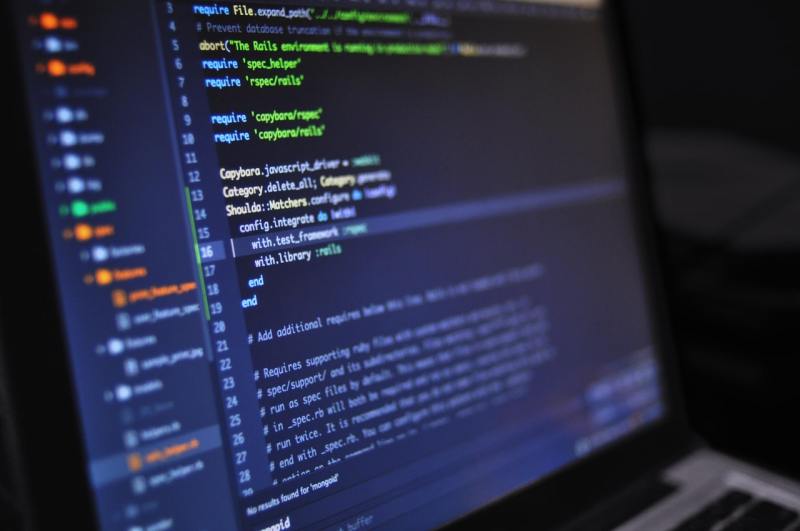Everyone thinks tech is going to save us. Not only because the digital revolution has changed everything — how we relate to each other, how we communicate with each other, how we love each other or how we spend over half our waking lives each day — but also because the technology industry itself has rapidly catalyzed social changes including intense gentrification and dropped workplace norms, supposedly for the better. Out with the old, outdated modes of living; in with the new.
It’s undeniable that problems like diversity and the glass ceiling plague tech as an industry. But as programs like freeCodingCamp, Kode with Klossy and Girls Who Code remind us constantly, tech is our collective future: The only way to go from here is up, and tech will lead the way.
Technology promises a new social order because it positions itself as being so seductively meritocratic. When executives wear turtlenecks and gray T-shirts to work, they remind us how relatable they are, if you look past their billions in net worth. As a society, we see lines of code as objective, and therefore moral, ethical and pure. The blockchain knows no moral judgment (yet).
We’ve sold ourselves on a new, liberal narrative. Sure, old institutions like government (lobbying, Citizens United), Hollywood (#MeToo), media (Shitty Media Men list) and academia (Junot Diaz) may be corrupt, but the future won’t be. After all, tech is objective and ruthless. Just take a moment to think about how gross, how messed up this hope is that we’ve had to adopt in order to continue living our lives.
Two months ago I sat down to dinner with a friend. Both of us are 18, stepping into adulthood. “Do you ever get the feeling the world is going to end?” she asks, completely seriously.
“What do you mean?” I say. She offers a few possibilities: the dramatic global rise of populism, volatile economic plays, global warming maybe. I shake my head. The world has millennia of battle scars. And at 18, I’ve never known a world that wasn’t in constant turmoil.
But maybe she’s right. Maybe the world is getting worse.
There is a boundless hope when it comes to matters of science and engineering — a central, concrete belief that every facet of the industry is heroic because it is engaged in solving problems and optimizing life. Or else, it is expanding the limits of human understanding, on which a value can simply not be placed (supposedly). Perhaps that is what Joi Ito, director of MIT Media Lab, believed, when he facilitated and actively hid years of underhanded donations from Jeffrey Epstein. That the pursuit of science is more important than morality, because there are no limits to what you can achieve, find or discover with just a little push. Information is king in the tech world, but it is also its downfall.
I went to the National Portrait Gallery by myself last month. They had a portrait of Toni Morrison on an entire wall next to Amy Sherald’s picture of Michelle Obama. I stood for a long time in front of the painting of four female Supreme Court justices, thinking about the history being made all around me.
Maybe every little girl grows up thinking her generation will be better than the last, keeping the Wall Street Journal clipping of Obama’s inauguration and its celebratory headline proclaiming how historic this moment will always be. I don’t know if every generation feels like a new age, but mine did. When I was one, Wikipedia was founded. When I was six, the first iPhone came out. This industry is big and just getting bigger, my dad, a computer scientist, said.
I thought things would be different, as each day’s news revealed more cracks in old institutions. It’d just be a matter of time — after all, according to Moore’s Law, processing power for computers doubles every two years. It’d just be a matter of time before something digital would rescue us. I think the world turned its heartbreak, rage and anger toward worldwide corruption, and funneled it into hope for a technocratic utopia that isn’t materializing anytime soon.
Technology will never be pure or moral under capitalism. The “relatable” pathways taken by Mark Zuckerberg and Peter Thiel and their ilk all starts with venture capitalists, billions in funding with anonymous sources — power, for short. As we’ve seen repeatedly, it’s not uncommon for billionaires to fund projects like twenty-first century Manifest Destiny ambitions to colonize Mars instead of similarly groundbreaking projects like improving workers’ conditions or combating global warming. There is no technology without money, and there is no money without power, and there is no power without corruptible institutions. I learned that this year.
In 2009, I visited the Presidential portraits gallery with my mother. Next to 43 portraits on the wall, hung a mirror, labeled 45th President.
“Could it be you?”
Back at the gallery in 2019, I again walked the halls, but the mirror was long gone. The pathways to power in this country are more elusive than ever, and a widespread disillusionment towards supposedly meritocratic institutions has taken over. Fantasies of a clean technocracy have proved largely defunct.
Young women like me will continue to enter STEM fields. We will continue to disrupt those industries, just as we have been disrupting every male-dominated field. But we will no longer do so for technology’s grand promises, but in spite of them.
Contact Dana Chiueh at chiueh ‘at’ stanford.edu.
